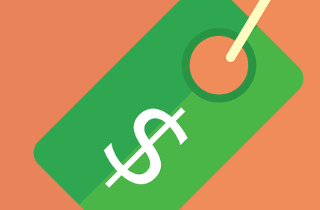The Good and The Bad News
We’ll give you the bad news first.
The bad news is that addiction treatment is not currently free in the U.S. In fact, the cost of inpatient residential treatment averages about $700 a day, while outpatient treatment can cost closer to $500 a week.
The good news? Treatment works! Plus, there are many options available to help you reduce the cost of addiction treatment. Getting the help you need is too important to let the cost of treatment stop you.
Here, we review a few ways you can find affordable addiction treatment. At the end, we welcome you to send your questions via the designated comments section below. We try to provide personal and prompt answers to all of our readers’ legitimate inquiries.
Health Insurance Coverage For Addiction Treatment
The American Health Association has classified alcoholism and substance use disorders as medical diseases. So, it is logical that health insurance should cover some of your treatment expenses. If you don’t have health insurance, remember that you can obtain it at any time.
Insurance won’t cover full expenses, but it will cover what is deemed “medically necessary”. This may include:
- assessment
- detoxification
- most outpatient treatment programs
- some inpatient treatment programs
Call your insurance company to determine your coverage. Ask about co-pays, what level of treatment will be covered, and what criteria is used to evaluate “medical necessity.” You can also call the admissions department of the programs you’re considering to ask what insurance is accepted.
Medicare and Medicaid will also absorb some of your treatment costs. Medicaid coverage varies by State, but likely partially covers both inpatient and outpatient treatment at facilities where Medicaid is accepted.
Low Cost Facilities
Even if you don’t have health insurance, it’s possible to find low cost treatment facilities. You can find more information about low cost facilities by contacting your county or state assistance office. Lots of time, follow-up, and documentation will likely be required, as there are usually waiting lists for these programs. Still, finding low cost treatment is possible with effort and persistence.
Free Rehab Options
Free rehab is rare, but some nonprofit organizations like the Salvation Army do provide free or low-cost treatment. Religious organizations sometimes provide free treatment as well.
Financial Aid
Many treatment centers have payment assistance programs that can make your treatment much more affordable. For instance, you may be able to find a program that uses a sliding scale payment method. With a sliding scale, payment is based on how much you can reasonably afford. Lower income patients will receive reduced costs according to their ability to pay. The Substance Abuse and Mental Health Services Administration (SAMHSA) has a locator that you can use to find nearby treatment facilities with payment assistance programs. Use the sort filter in order to restrict your search to find these facilities.
Payment Plans
You may also be able to find treatment centers offering payment plans. Under a payment plan, you’ll pay a set amount each month. Over time, these payments will equal the full cost of treatment. Although a payment plan doesn’t truly reduce the cost of treatment, it does allow you to spread payments out over time.
Rehab Scholarships or SAMHSA Grants
Some programs also offer full or partial rehab scholarships. Call the programs you’re considering, explain your personal situation, and ask if they offer such scholarships. If so, request information about how to qualify or apply.
You can also apply for a SAMHSA grant. Like rehab scholarships, the SAMHSA grant may cover all or part of your treatment costs.
Other Financing Options
If the options listed above don’t offset treatment costs enough, you can consider other financing options. You may not be comfortable with all of these options, but they are some ideas to consider when other options aren’t working for you.
- Taking out a home equity loan.
- Applying for a personal loan.
- Seeking loans from specialized loan companies, like Prosper Healthcare Lending.
- Borrowing from personal savings or retirement funds.
- Financing treatment through credit or health care credit cards.
- Setting up a crowdfunding campaign through sites like GoFundMe.
- Borrowing from family or friends.
NOTE HERE: Before deciding on high risk options like credit cards, make sure you’ve exhausted all other possibilities.
Why is Rehab Worth its Cost?
Addiction treatment is cost-effective. Ultimately, you must look at the cost of addiction treatment as an investment. It’ll likely cost you less than a lifetime of buying drugs or alcohol, losing jobs due to addiction, and potentially requiring medical attention.
Seeking treatment is an investment in your health and happiness, which are worth far more than any monetary amount.
Got any questions?
We welcome you to share your thoughts, questions, or concerns with us. Please use the comments section at the bottom of the page and we’ll do our best to answer as soon as possible. We do our best to help all who are looking for appropriate substance use treatment options.









Related Posts